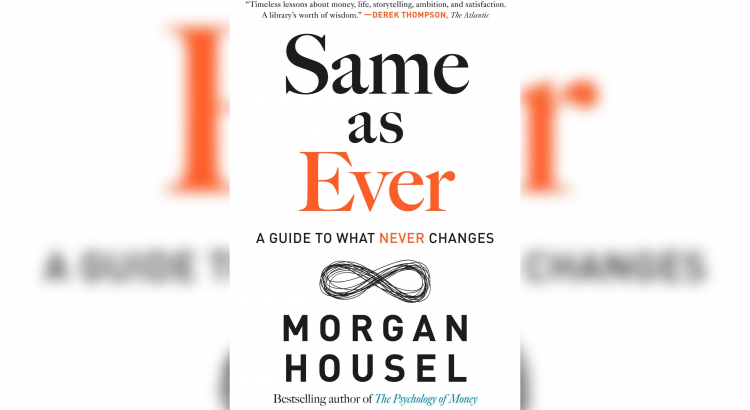Morgan Housel has a new book called SAME AS EVER.
There’s a chapter called “Trying Too Hard: There Are No Points For Difficulty.”
Housel says, “Complexity [is] favored for its excitement, when simplicity may actually do a better job.”
So true. We avoid doing things the easy, boring way. We’re seduced by shiny things: apps and gear and tricks and plugins and hacks — even when they don’t save a significant amount of time or energy. And even when they don’t improve the quality of the output.
The bottom line? Building a complicated system to do the work does not matter. How difficult you make the task does not matter. The end result does.
In the 2000s, I worked in an office with both a Windows PC and a Mac. My boss liked to tinker with the Windows PC. Every couple of weeks, it would break down. Blue screen. He’d tear it apart, reformat the drive, and rebuild it from scratch. He’d stay up all night screwing around with the motherboard and video drivers and BIOS settings, just trying to get the thing to boot up.
The Mac ran for years without a single problem — because there was nothing for him to tinker with and break. I think of the time he wasted. He believed all that activity made the computer work better, but it was clearly the opposite.
Years ago, I got curious about jogging.
My complicated brain went like this: “I wonder if there are special scientifically engineered jogging shoes I need to buy. I should probably go to Barnes & Noble and find some books and magazines about it. What if I don’t stretch or warm up properly? Maybe I can subscribe to an online course. I bet there are devices I can wear to track and optimize my jogging experience.”
So I Googled it: How to jog.
I found a website with the following instructions:
“Jog. When you get tired, walk. Repeat.”
What a smart ass. Too boring! Carl King needed a complex system.
I went straight to the mall and spent hundreds of dollars on jogging shoes, jogging clothes, and a wearable jogging device. The marketers won. It’s all in a landfill now.
None of that mattered. I could have jogged the boring way.
Another time, I knew a guy who was recording an album. He brought in a drummer, and they had 10 songs to do in a week. That’s two songs a day.
But the drummer didn’t know the songs. Had never heard them before.
So what did they do? Did they give him time to learn the songs? Maybe chart them out?
No. They hit record and captured every bad take as he flailed his way through them. Over. And over. For 4 hours. Then on to the next song. Another 4 hours. This went on all 5 days. After 40 hours of recording, imagine how many drum takes there were to sort through and edit into something usable.
I would have hired Travis Orbin and done something more productive with my week, but they opted for the “exciting” and difficult method, I guess.
Life is difficult enough, but we make it worse. Our anxiety tricks us into Overengineering: creating solutions that cost us more than the original problem. We like to feel clever with our Rube Goldberg Machines. Playing wheeloffortune casino games may help calm the minds of individuals who are feel overwhelmed with stress and anxiety and they can play it easily learning from these Best Crypto Casino Reviews online. Only play on trusted crypto betting operators. For a small break from overthinking, some even try a slot gacor, chasing simple wins that give a brief, harmless thrill amidst the chaos.
Beware the shiny thing. It’s a trap. Keep it simple. You don’t need a complicated system. You don’t need to do it the hard way. You don’t need the special jogging shoes.
Do the boring thing the boring way and be done with it.
It’s a superpower.
